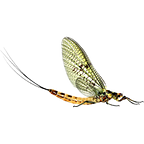Yuri Rytkheu is a Chukcha who grew up on the Russian side of the Bering Strait. I admit a shamedly ignorant and orientalist fascination for nomadic shamanistic peoples in remote places. I’m enchanted by the idea of a secret ancient wisdom, even while I know anything presented in translation is more likely to be an imposition of exogenous ideas than any perennial philosophy.
And I also admit to enjoying a couple Russian jokes I read about the Chukchi: A Chukcha and a Russian geologist go hunting polar bears. When they track one down, the Chukcha shouts, “Run!” and flees. The Russian shrugs, calmly raises his gun, and shoots the bear. “Russian hunter, bad hunter!”, the Chukcha exclaims. “Ten kilometres to the yaranga, you haul this bear yourself!”
This short book — which took me months to read, and yet which I plan to give to my seven-year old daughter — is both a folkloric cosmogony and a morality tale imploring us to live in harmony with the natural world rather than exploiting it.
Central to the theme is the idea that whales are our brothers, and we are descended from the union of common ancestors: Nau and Reu. As sweet and naïve as that sounds, it’s worth pointing out that, over geological time, it’s kind of biologically true. This union is inspired by a great love that transcends selfishness, and it is blindness to this love that will bring our destitution.
Much of the book is a pleasing attempt to find different ways to describe sunlight over snow, seawater thickening with cold, and seal anatomy. There is also a section that resonates with me and some of my other reading on the emergence of thought and word, and the way we have become isolated within our minds from the world ‘outside’, rather than true participants in it:
“When I was young, I dashed about the springy tundra hillocks, cold and soft with groundwater, like a doe. I had no inkling of what I was — a sable, a wolf, a wolverine — and it made no difference to me. Not until Reu came and gave me the gift of Great Love. And Great Love was a mystery, too, because we knew not whence it had sprung, to come to us. This mystery gave birth to thought; while there is mystery humans will always try to use reason to solve it”…
“Things, you understand, have a life of their own, regardless of people naming and measuring them,” Nau continued. “But of all the living creatures, only humans have words. And speech is what makes us human”…
“There aren’t any gods,” Nau snapped. “People just made them up, because they feared mystery. When you can’t be bothered to use reason to understand mystery, that’s when you make up gods. As many gods as there are mysteries in the world. You can blame everything on gods. Whenever a person shows weakness, some strange powers must be involved. These days people even say their own powers are gods-given. Disgraceful!”
